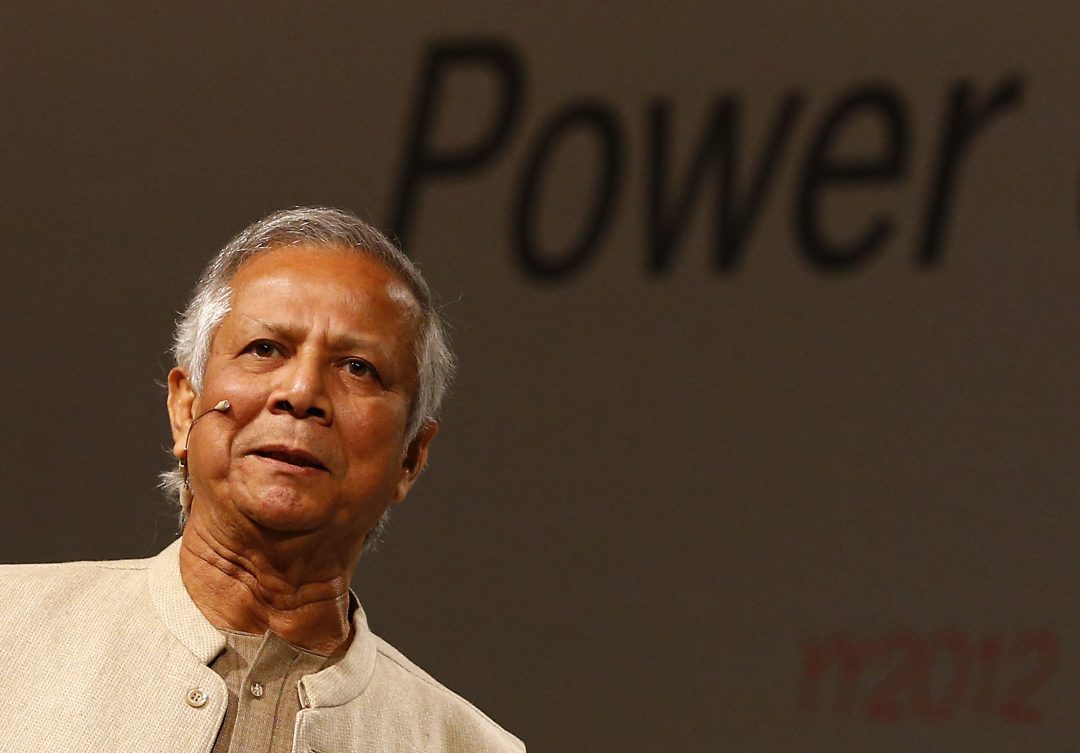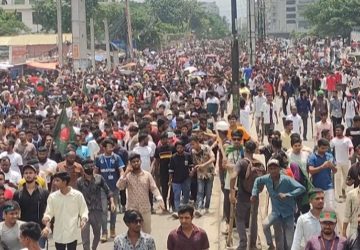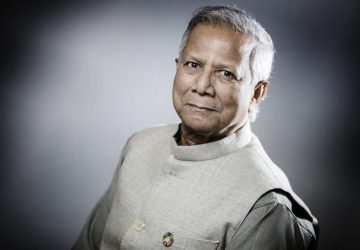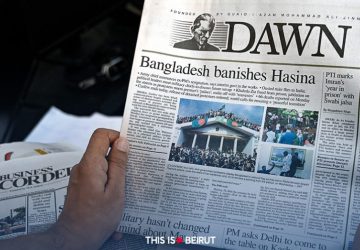Bangladesh’s Nobel-winning microfinance pioneer Muhammad Yunus will lead an interim government after mass protests forced longtime prime minister Sheikh Hasina to flee, the presidency announced Wednesday.
The appointment came quickly after student leaders called on the 84-year-old Yunus — credited with lifting millions out of poverty in the South Asian country — to lead.
The decision was made in a meeting with President Mohammed Shahabuddin, the heads of the army, navy, air force, and student leaders.
Yunus will have the title of chief advisor, according to Haid Islam, one of the leaders of Students Against Discrimination who participated in the meeting.
However, there were few other details about the planned government, including the role of the military.
Deadly Crackdown
Hasina, 76, who had been in power since 2009, resigned on Monday as hundreds of thousands of people flooded the streets of Dhaka demanding she stand down.
Monday’s events were the culmination of more than a month of unrest, which began as protests against a plan for quotas in government jobs but morphed into an anti-Hasina movement.
Hasina was accused of rigging January elections and widespread human rights abuses.
The military has since acceded to a range of other demands from the student leaders aside from Yunus’s appointment.
The president dissolved parliament on Tuesday, another demand of the student leaders and the major opposition Bangladesh National Party (BNP).
The head of the police force, which protesters have blamed for leading Hasina’s crackdown, was sacked on Tuesday, the president’s office said in the statement announcing Yunus as leader.
Ex-prime minister and BNP chairperson Khaleda Zia, 78, was also released from years of house arrest, a presidential statement and her party said.
And the military reshuffled several generals, demoting some seen as close to Hasina, and sacking Ziaul Ahsan, a commander of the feared Rapid Action Battalion paramilitary force.
Free from ‘Dictatorship’
Streets in the capital were largely peaceful Tuesday — with shops opening and international flights resuming at Dhaka airport — but government offices remained mostly closed.
Police said mobs had launched revenge attacks on Hasina’s allies and their own officers and also freed more than 500 inmates from a prison.
Some businesses and homes owned by Hindus — a group seen by some in the Muslim-majority nation as close to Hasina — were also attacked.
Bangladeshi rights groups, as well as US and European Union diplomats, have expressed concerns about reports of attacks on religious, ethnic, and other minority groups.
Shafiqul Alum, with AFP





